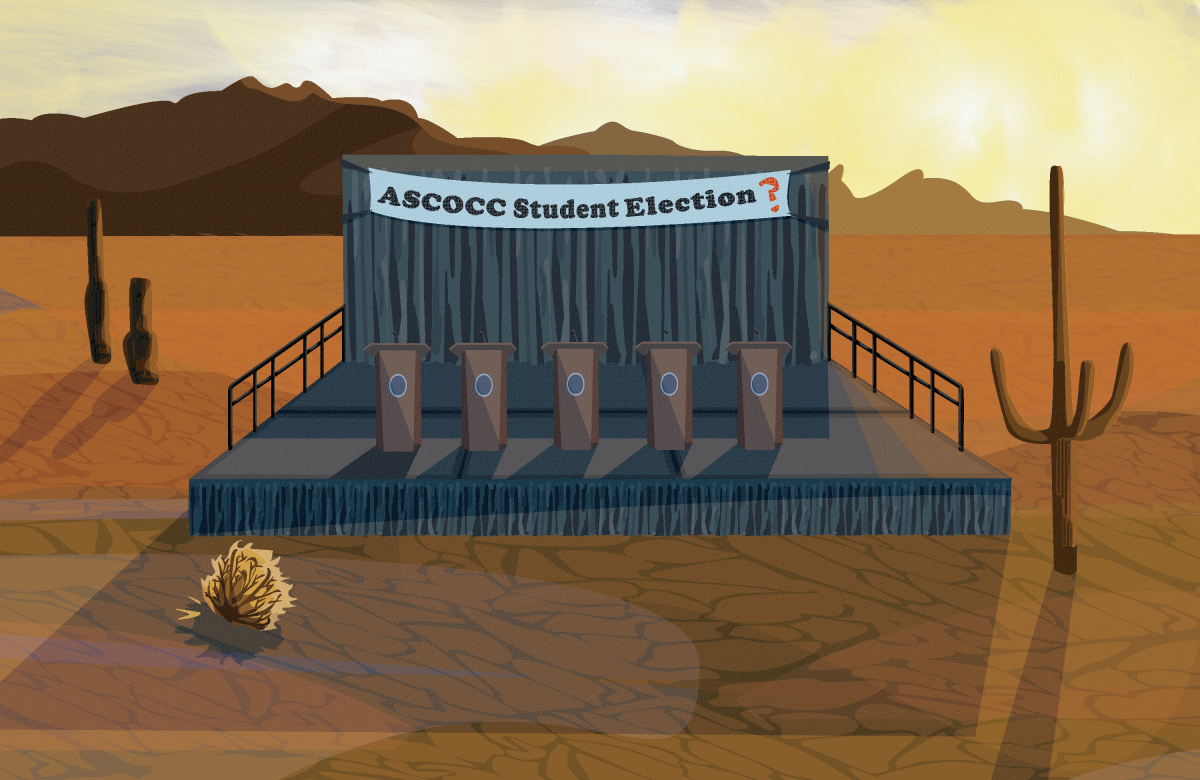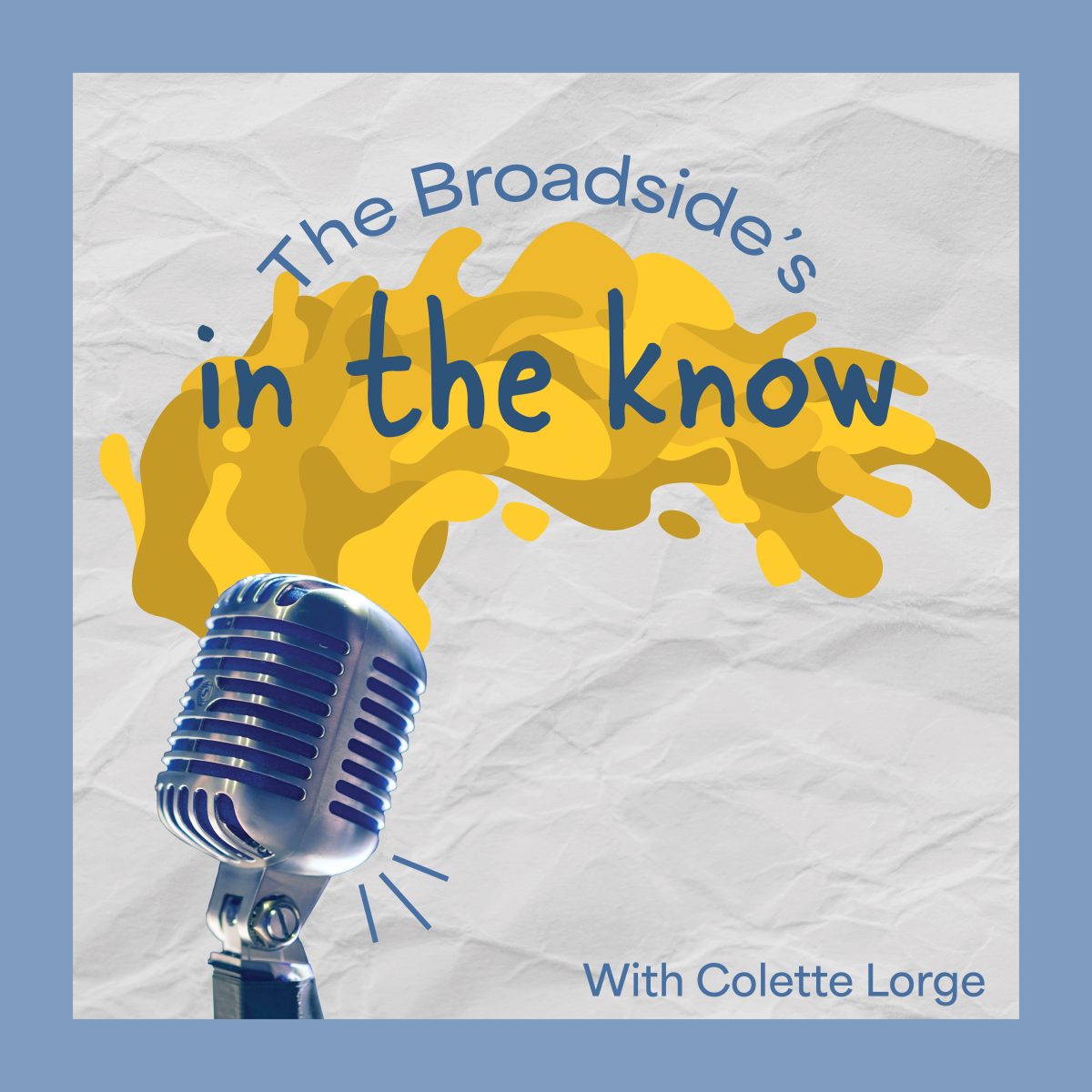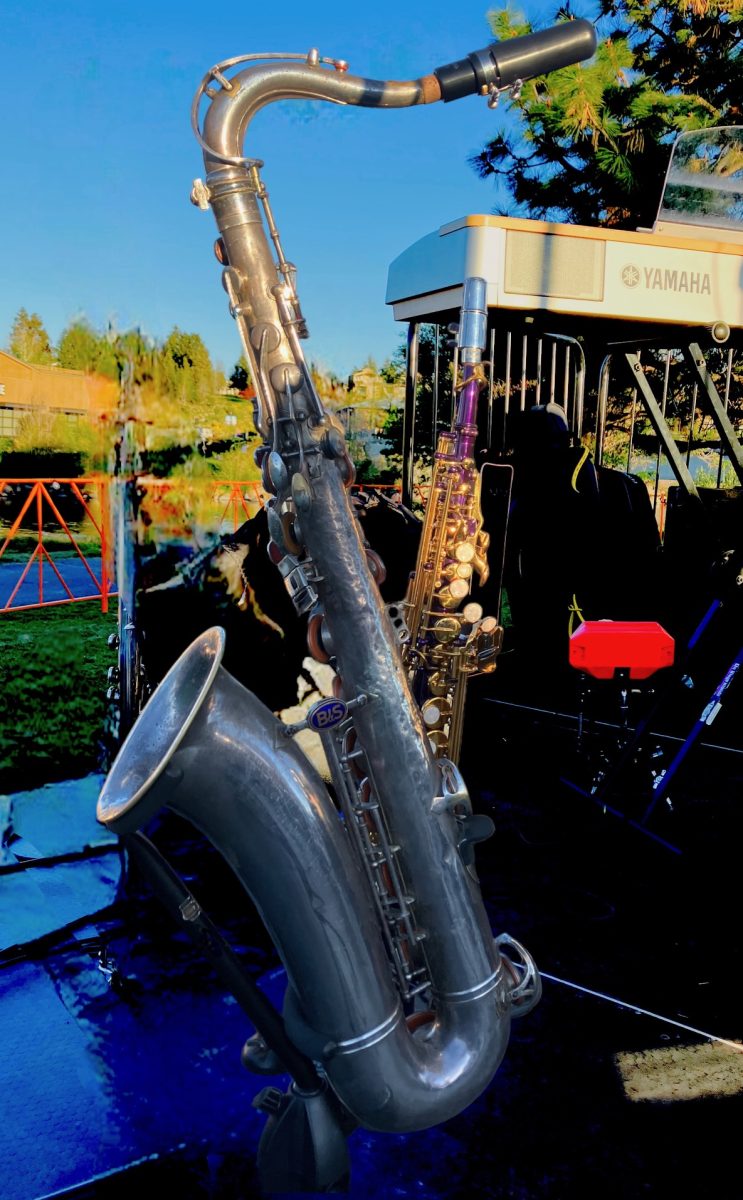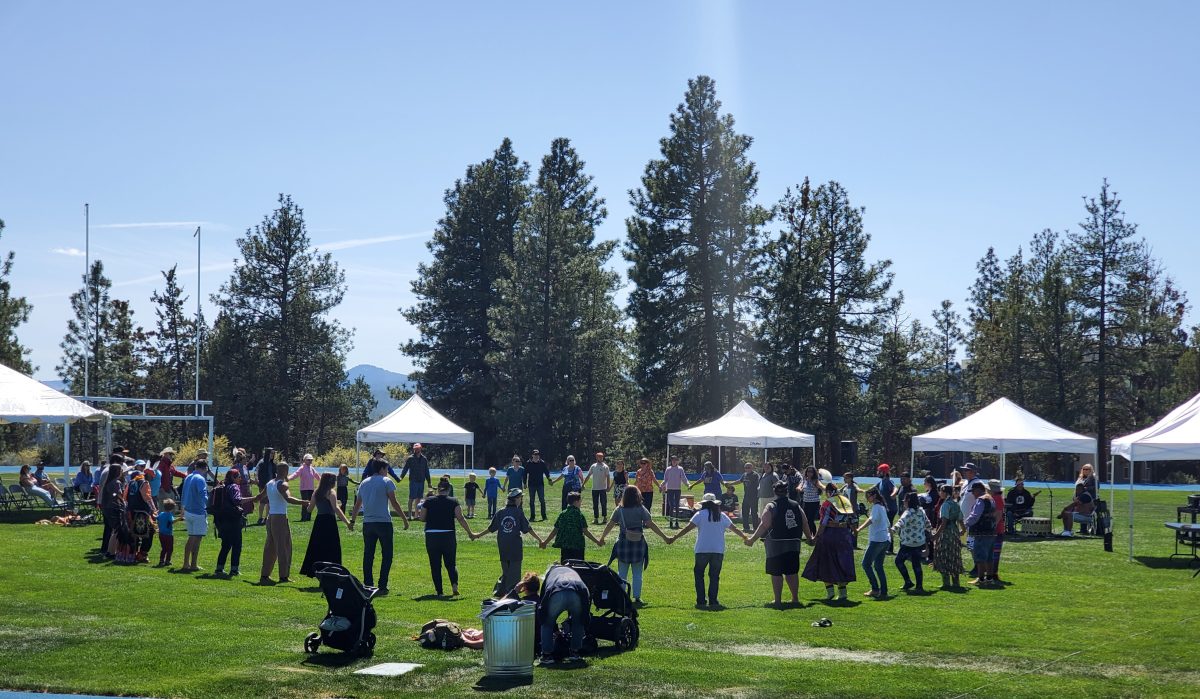Cedar Goslin
The Broadside
In 1969 he helped hold down Alcatraz against US forces; in 1973 he spoke on behalf of the defendants of the Wounded Knee trials; in 1979 he burned the American flag on the steps of FBI headquarters. In December 2011 John Trudell, once known as “the voice of Alcatraz” and a spokesperson of the American Indian Movement, came to Central Oregon Community College to speak.
Trudell’s visit was sponsored by COCC’s Native American program; Gina Ricketts, the program’s coordinator, hoped students would be inspired by his experiences.
“Campuses are full of young people who are aching for change… I thought he would be a great person to speak to people with those thoughts,” she said.
Trudell is a man who can relate to seeing a need for change, which is what spurred him to join the movement to occupy Alcatraz when he was 23 years old.
“America had been fucking Indians over forever…it wasn’t fair. That’s why I started out,” said Trudell.
Until that point, Trudell struggled to fit into a world in which he felt he didn’t belong.
“I couldn’t find my place in America,” Trudell said.
He later realized that the reason he didn’t belong was because he was trying to fit into the wrong world; the non-native world, which left no room for him to be in touch with his native roots and culture.
“In order to fit in I had to let them [white Americans] mistreat me,” said Trudell.
His decision to join with the occupation of Alcatraz was his first step in reconnecting with his heritage and culture.
“When Alcatraz came along I went and I fit…with the native world,” said Trudell.
After the Alcatraz occupation, Trudell said he “drifted” into the larger movement that was AIM. He was identified as a leader in the movement, but Trudell said that from his perspective, he was just expressing the feelings of the members of the movement.
“I’m my own mind I felt I was more of a spokesperson for the issues,” said Trudell.
Trudell was on the radar of the federal government.At one time the FBI amassed a “17,000-page dossier on Trudell, one of the longest in the agency’s history,” according to “Trudell,” the documentary made of his life.He was politically active for about 10 years, until tragedy struck. While Trudell was in Washington DC burning an American flag on the steps of the FBI headquarters, his house was burned down, killing his wife, mother-in-law and children. The source of the fire is still unknown.
“It changed my reality in a major way,” said Trudell.
His reality was no longer the same as that of the other activists, so he could no longer relate; political activism had been one phase of his life, and that phase was over.
“I left political activism behind like I left childhood behind,” said Trudell.
Spreading the message
Trudell began writing, which he said was a natural transition.
“It just organically happened and I went with it,” said Trudell.
For Trudell, writing was another way to spread messages that he felt needed to be heard. Writing and poetry led to music. Forty eight years after his tour with AIM, Trudell’s band “Bad Dog” is touring France.
Trudell today
Though he’s no longer politically active, he’s still concerned about Native American issues. Trudell said the most prominent injustice Native Americans face today are treaty agreements that still go unhonored by white Americans. The treaties are a form of law, said Trudell, and by not honoring them Americans are breaking the law.
“America cannot be a nation of law and break the 375 treaty laws that they broke,” Trudell said. But Native America issues go beyond conflicts outside their tribes; problems exist internally as well. One of the biggest problems Native Americans face is fighting amongst themselves.
“They are all concerned over fighting over who’s more Indian,” said Trudell. Native Americans are trying to retain their identity by fitting the definition of Native Americans that has been assigned to them, according to Trudell.
“They’re fighting over an identity that’s not even ours,” he said.
Trudell’s advice for young Native Americans is to get in touch with the realities of their heritage, discontinue to alienate themselves from one another, and, most of all, remember they’re human.
“We are primarily human beings… we need to understand and remember what that means,” he said.







